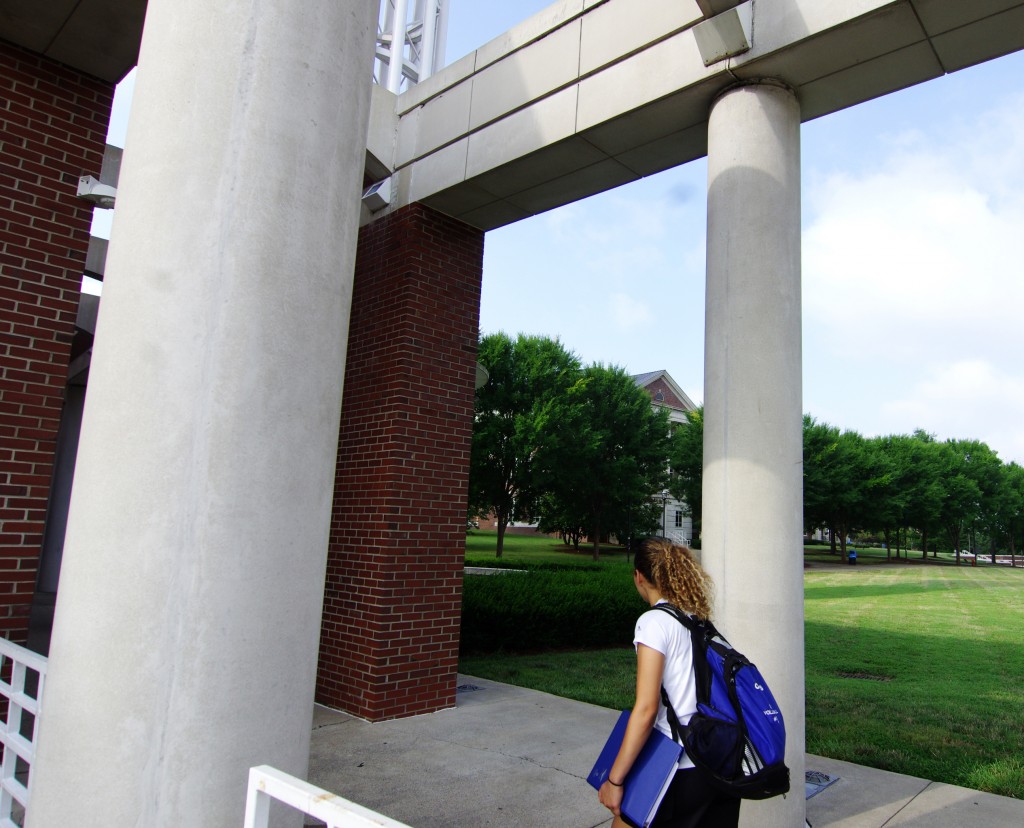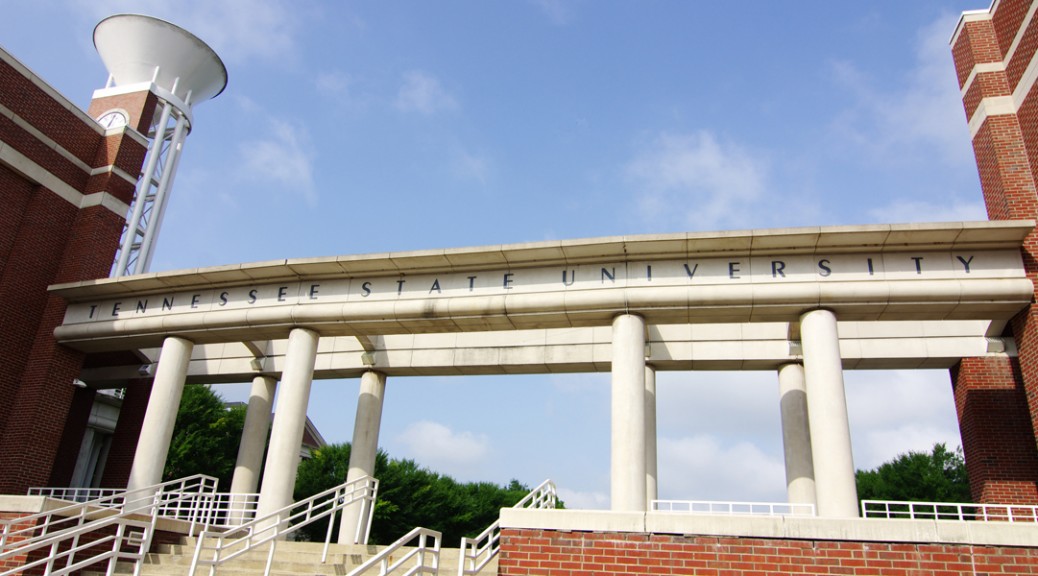NASHVILLE, Tenn. (TSU News Service) – When Tiffani Clark decided to go back to college at age 28, she wanted to make sure that her tuition was affordable, she could attend classes close to home, as well as have the ability to easily transfer her community college credits to a university.
Clark did not have to look far. Just a few miles from her Gallatin, Tennessee home, a 2+2 partnership educational program between Volunteer State Community College and Tennessee State University afforded her the opportunity she was seeking.
“I’m married with two small boys which made it difficult at times to get my college education,” said Clark. “Through the 2+2 and fast track programs, I was able to obtain my associate degree and continue my four-year degree with Tennessee State University. It’s challenging, but it’s a great program for me to be able to finish my bachelors degree in criminal justice.”
According to University officials, TSU is now creating more partnerships and programs with community colleges around the state to help students such as Clark, transfer seamlessly to the University to complete a four-year degree. Under the Community College Initiative, students have more options to move them along through their educational career.
Dr. Sharon Peters, director of the Community College Initiative Program, said the new initiative “just makes sense and is truly one of those win-win situations for everyone involved.”
“More and more students are choosing to pursue community college, as opposed to a university, right out of high school or as a nontraditional student because community colleges tuition costs are 50 percent less than four-year institutions,” said Peters. “Once they get their associate degree they will enter TSU as a junior and spend two years here, providing them with an opportunity to get their four-year degree from TSU.”
 According to a report from the National Center for Education Statistics, as of fall 2012, 40 percent of all college undergraduates were enrolled in community colleges. TSU, added Peters, is committed to partnering with the Tennessee community colleges to create programs and initiatives focused on increasing the number of students prepared for transfer to the University.
According to a report from the National Center for Education Statistics, as of fall 2012, 40 percent of all college undergraduates were enrolled in community colleges. TSU, added Peters, is committed to partnering with the Tennessee community colleges to create programs and initiatives focused on increasing the number of students prepared for transfer to the University.
“These programs and initiatives raise student achievement levels, close achievement gaps and successfully prepare a diverse population of students for academic and professional success,” said Peters. “Transfer preparation programs provide services such as regular and sustained advising, mentoring and early identification to improve student outcomes.”
According to Peters, the University is reaching out to all 13 community colleges around the state to develop long-lasting partnerships and relationships. Currently there are agreements with Volunteer State, Nashville State, Columbia State and Motlow State Community Colleges, with hopes to sign agreements with five additional institutions within the next year.
Programs through the initiative include the dual admission program where students gain early admission to TSU while completing an associate degree. These students receive a limited use student ID card that allows them to attend cultural and sporting events. They also meet with TSU advisors early in their community college career.
One of the most popular programs is the 2+2 program, where students complete all four years at their community college. The program follows a national trend where professors from universities including TSU, are increasingly traveling to teach on the community college campuses, offering bachelor’s programs as part of new partnerships with two-year schools.
After completing an associate’s degree, community college students can transfer to a four-year program and complete a university bachelor’s degree right where they are. Currently TSU has partnerships with Volunteer State that offers the 2+2 program in Elementary Education, Criminal Justice and Nursing, and Criminal Justice at Motlow State Community College. Additional 2+2 programs in the near future are planned in Business, Health Sciences and Urban Studies.
Through these programs, students have numerous options to complete their four-year education, and help students who aspire to attend TSU save money by paying lower tuition at a community college for up to two years before transitioning to the University.
“That is exactly why I decided to go the 2+2 route,” said James Murphy, a junior Criminal Justice major who attends Volunteer State Community College and will graduate in December with a Bachelor of Science degree from TSU.
Murphy decided to stay on the campus for his TSU degree because it would be more convenient and cost less.
“The program has allowed me to work a fulltime job and take a full class schedule,” Murphy said. “Without it, I don’t think I would have been able to afford to go to school and finish my degree. Plus the instructors were very knowledgeable, the class sizes are usually small, and teacher-student interaction is encouraged.”
These new relationships and initiatives, Peters added, are programs that specifically focus on the Community Colleges and their needs, but also the needs of the larger community. And with Tennessee Governor Bill Haslam’s “Drive to 55” education initiative, TSU is prime to help lead the way for not only higher education, but for workforce and economic development.
“Of course we want to see growth in the number of transfer students that choose TSU, and a growth in the number of partnerships. More importantly we want to see partnerships between community college faculty and university faculty whereby they engage in joint research and curriculum design,” Peters said. “These types of partnerships benefit the students, the community and the state in our effort to insure that the majority of our citizens have a college degree.”
Department of Media Relations
Tennessee State University
3500 John Merritt Boulevard
Nashville, Tennessee 37209
615.963.5331
About Tennessee State University
With nearly 9,000 students, Tennessee State University is Nashville’s only public university, and is a comprehensive, urban, co-educational, land-grant university offering 38 undergraduate, 22 graduate and seven doctoral programs. TSU has earned a top 20 ranking for Historically Black Colleges and Universities according to U.S. News and World Report, and rated as one of the top universities in the country by Washington Monthly for social mobility, research and community service. Founded in 1912, Tennessee State University celebrated 100 years in Nashville during 2012. Visit the University online at tnstate.edu.

